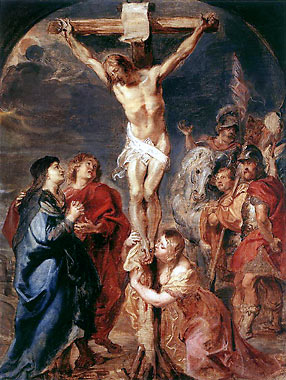
Those who try to suppress women leadership within the church often ignore or forget the major role that women played in the New Testament and the early church. Let's look at a few examples...
Many scholars think that Mary Magdalene played a major role in church leadership in the very beginning of the church. Some scholars believe this in part because of her role in the gospels and in part because she is mentioned in other noncannonical texts(ancient writings that aren't in the Bible). This seems to suggest that although Mary wasn't mentioned in the New Testament after the gospels, she did play an important role in founding the church. For a lot of people, though, the fact that Mary is listed in nonbiblical writings doesn't really mean anything because it's not scripture. So, we'll move on to writings within scripture.
Priscilla is mentioned in Acts 18, Romans 16, 1 Corinthians 16, and 2 Timothy 4. The interesting thing about Priscilla is that she was married to Aquilla. Usually in ancient texts when an author mentions a married couple, the author will write the male's name first (in Romans 16:7 Paul mentions Andronicus and Junias - probably a married couple), but in many of these passages Paul writes about Priscilla and
then Aquila. He mentions the woman first! Why would he do this? I think that this is because Priscilla played the more important role in the story. In Acts 18 we learn that Priscilla and Aquilla welcomed Paul in Ephesus as he went through his missionary journey, and we can definitely tell that Paul greatly appreciated their ministry because he mentions them 3 different times in 3 different letters in the New Testament. I can't help but notice Priscilla's importance through these passages, and I can't help but think that she was definitely a leader within her church.
Then, in Romans 16, Paul gives a long greeting to different members of the church at Rome. 4 of the first 7 people he mentions are women...
[1] I commend to you our sister Phoebe, a deacon of the church in Cenchrea. [2] I ask you to receive her in the Lord in a way worthy of the saints and to give her any help she may need from you, for she has been a great help to many people, including me. [3] Greet Priscilla and Aquila, my fellow workers in Christ Jesus. [4] They risked their lives for me. Not only I but all the churches of the Gentiles are grateful to them. [5] Greet also the church that meets at their house. Greet my dear friend Epenetus, who was the first convert to Christ in the province of Asia. [6] Greet Mary, who worked very hard for you. [7] Greet Andronicus and Junias, my relatives who have been in prison with me. They are outstanding among the apostles, and they were in Christ before I was.
Notice that the first person he mentions is a woman, and he calls her a deacon! Then we see Priscilla, probably the same person as in Acts 18, then Mary, and then he mentions that Andronicus and Junias are apostles. He calls a woman an apostle! His list goes on in Romans 16 and there are several men and women that he mentions. It seems to me that in this list there is no distinction between men and women. It seems that men and women play an equal part in the church that Paul is writing to.
If we move on to Philippians 4, Paul is writing to correct a problem within the church. Apparently, two ladies named Euodia and Syntyche aren't getting along so well...
[2] I plead with Euodia and I plead with Syntyche to agree with each other in the
Lord. [3] Yes, and I ask you, loyal yokefellow, help these women who have
contended at my side in the cause of the gospel, along with Clement and the rest
of my fellow workers, whose names are in the book of life.
I love that Paul isn't shy, and he's not afraid to confront a problem when it hinders the church. He straight up calls these women out in front of everybody so that they can fix the problem. Notice, though, that the problem is not that there are women leaders. The problem is that they are leaders who can't see eye to eye. It wouldn't matter if they were men or women. How do you know that they are leaders and not just regular people causing problems, you ask? Look at verse 3 - he says that these women "contended at my side in the cause of the gospel, along with Clement and the rest...." These women worked alongside the apostle Paul. They were involved in the ministry of God.
Just from these examples, I think that it's plain to see that women had leadership roles in the New Testament church. Next week, I'll take a look at a few passages that focus on the fact that the church is meant for everybody and discuss what implications that has for the nature of leadership.
 It's that time of year again... I get to plan our youth and college budgets. This wouldn't be a huge deal if I didn't HATE money and math and things of the like. It makes it worse that I can't go off of the same budget I used last year because we have to make cuts. It's enough to make the left side of my brain explode.
It's that time of year again... I get to plan our youth and college budgets. This wouldn't be a huge deal if I didn't HATE money and math and things of the like. It makes it worse that I can't go off of the same budget I used last year because we have to make cuts. It's enough to make the left side of my brain explode. 






